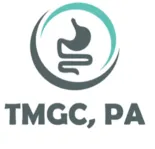
Acid reflux occurs when stomach acid flows back into the esophagus, causing discomfort and potential damage. This can be irritating to deal with and can interrupt your life severely. If acid reflux isn’t treated, it can continue to happen and become a more serious issue. It’s important that you don’t ignore signs of acid reflux and that you take steps to treat and prevent acid reflux in the future.
Dealing With Acid Reflux
You must be able to recognize common signs of acid reflux. This can help you avoid complications and treat your symptoms as soon as possible. It’s crucial to be able to find relief from the pain of acid reflux and be able to live without constant worry. Most commonly, acid reflux is associated with a burning sensation in the chest, often after eating, which might be worse at night or when lying down.
Other common symptoms include:
- Regurgitation
- Difficult swallowing
- Chronic cough or sore throat
- Chest pain
It’s important to understand how to treat your symptoms and deal with acid reflux. Most often, you’ll need to make lifestyle changes to avoid acid reflux. It’s important to adjust your diet and habits. This could include avoiding spicy foods, eating smaller meals, and not lying down immediately after eating. You should also be incorporating foods that reduce acid reflux, such as vegetables, lean proteins, and whole grains, while avoiding trigger foods like caffeine, alcohol, and fatty foods.
Using antacids, H2 blockers, or proton pump inhibitors can help to neutralize or reduce stomach acid. If pain is persistent and over-the-counter options aren’t helping, they can prescribe stronger medications. Maintaining a healthy weight can also help you prevent acid reflux. Another option is raising the head of your bed by 6-8 inches.
Contact Our Gastroenterologist Today
Find out how you can relieve your acid reflux symptoms! Contact your gastroenterologist to learn more today.

